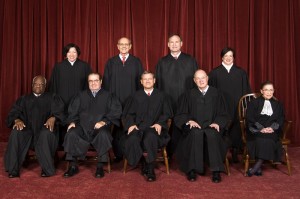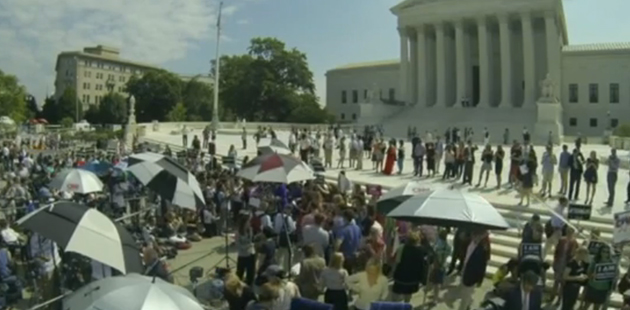Slippery slope of Hobby Lobby
The day after the US Supreme Court issued a ruling in Burwell v. Hobby Lobby declaring that family-owned businesses are not required to provide certain forms of birth control in its employee health plan if it conflicts with their religious beliefs, fourteen religious organizations sought a religious exemption to an upcoming federal law barring federal contractors from discriminating on the basis of sexual orientation.
Contrary to Justice Alito’s adamance that the Hobby Lobby ruling would be narrow in application, it has instead created a slippery slope which will embolden conservative and religious businesses like these to cite religious freedom as a means to circumvent federal law when it runs counter to their beliefs.
Hobby Lobby is likely to reshape workplace policy and rights and create a host of new employment discrimination claims. Justice Ginsberg now seems especially prescient in her dissent: ”The court, I fear, has ventured in to a minefield.”
The fourteen signatories, which include Catholic Charities, Gordon College and a former White House religious advisor, state in their letter to President Obama, without a trace of irony, that they “agree that banning discrimination is a good thing,” but that requiring them to ban discrimination in their workplace is wrong because it offends their religious sensibilities.

(Wikipedia)
They acknowledge the strides that have been made socially and legally regarding human sexuality in the last ten years, but they are personally unwilling to accept this change because it makes them uncomfortable and usurps their religious liberty.
The letter essentially asks that these religious groups not be discriminated against for wanting to discriminate: ”We live in a blessed nation, constantly perfecting its fundamental ideal, that no matter what god you pray to, what you look like or who you are; there is a place in this nation for you if you seek to serve your fellow Americans.” Unless you are an LGBT person who wishes to be employed in one of these fourteen workplaces; then there is no place for you.
But the crux of the matter here is not religious freedom; it’s money. These organizations do not want “to be disqualified or disadvantaged in obtaining federal contracts because of their religious beliefs.” Without a religious exemption, they whine that they will, “… in a concrete way … lose financial funding.” Doing God’s work isn’t cheap, apparently.
Cloaking LGBT discrimination as a religious freedom issue and bemoaning that without federal money they will not be able to help “the common good” doesn’t change what they are really asking for: a federal exemption to enact bigotry.
Monetary support — tax money, tax exemptions or government contracts — cannot come from the federal government as long as these groups engage in discriminatory hiring. If they are unwilling to accept federal law, then don’t ask for federal money.
And rather than asking for a federal exemption, this group of fourteen would be better off asking “WWJD?” — What Would Jesus Do? It seems unlikely that Jesus would exclude anyone from his group of disciples and then have the nerve to ask for public money to support him while doing so.

Lisa Perez Tighe has been an attorney, writer and a professor. She attended the University of Notre Dame and New York University School of Law. A native of the Bronx, Lisa currently resides outside of Boston with her husband and four children

